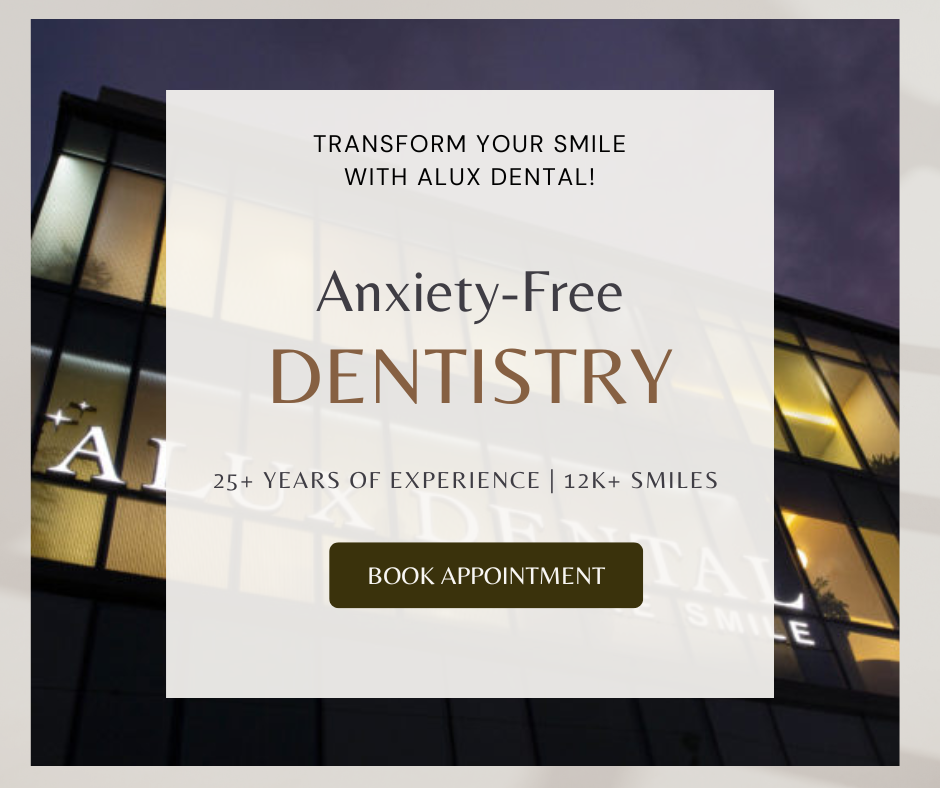Caring for Teeth and Oral Cavity Among Senior Citizen | Alux Dental

Proper maintenance of your gums and teeth ought to be a concern for everyone, regardless of age. A healthy mouth makes it easier to smile, converse, laugh, and eat the things you need for optimal nutrition.
You may help your teeth endure a lifetime by following these suggestions for older adult dental care. Your teeth and mouth are vital to your overall health. By developing a good dental care regimen, you may help your teeth get stronger and last longer, avoiding problems like dental caries and gum disease.
Learn more about the changes that occur in your teeth as you grow older.
Dental Caries
Tooth decay develops when plaque microbes feast on the sugars in your meal, producing acids that destroy the enamel of your teeth. If left untreated, this decay can lead to cavities and eventually infect your entire tooth, necessitating
- Restorations
- Crowns
- Root canal therapy
- Extraction methods
The disease of the Gums
Periodontal disease, often known as gum disease, arises when plaque and tartar accumulation leads your gums to go through:
- Reddening
- Inflammation
- Bleeding
If left untreated, your gums will begin to peel away from your teeth, forming pockets that can become infected. This infection can eventually destroy the bones, gums, and tissue that support your teeth. You may even lose your teeth in extreme circumstances.
Make your oral health precedence to eliminate the discomfort of tooth decay and gum disease. There’s no hard and fast rule as to when you gotta develop new oral hygiene practices. Take care of your teeth and mouth as you age by following these guidelines.
Brush Twice Daily
Brushing your teeth is not necessarily rocket science and it must be done twice daily. Brush for two minutes at a time with a toothbrush with soft bristles and fluoride toothpaste. As you get older, arthritis and other illnesses may limit your movement, making it difficult to handle a toothbrush.
- It may be beneficial to use a large elastic band to secure the toothbrush grip on your hand.
- Others prefer to enlarge the handle by attaching it to sponges or polystyrene balls.
Brushing may be simpler for those with restricted shoulder movement if they connect it to a long bit of timber or plastic handle. Electric toothbrushes can also benefit people who have restricted mobility.
Floss your teeth every day
Flossing is also a crucial habit to develop to remove plaque and food particles from between teeth. At least once a day, you should scrape between your teeth. If you have restricted movement and find it difficult to floss
At that moment, you should consider an interdental cleaning product or floss holder. Water flossers are another popular option for folks who have difficulty using regular floss.
Fluoridated Toothpaste Should Be Used
Cavities are more common in older people. Fluoride toothpaste promotes enamel remineralization and aids in the prevention of tooth decay. You may also consider using a fluoride mouthwash for further help. Your dentist might also recommend prescription-based fluoride toothpaste.
Consume a Nutritious Diet
It is as they say, “You are what you eat.” Maintaining a healthy diet is paramount when it comes to leading a healthy life. The process begins in your mouth, and just like that, your dental health is the first thing that takes a hit eventually.
- Start by minimizing sugary and carbohydrate-rich foods
- Alongside, the beverages also count if you want to enhance your dental health.
- Replace them with meals that strengthen your teeth and help your mouth eliminate germs and acids from your teeth.
The American Dental Association (ADA) also suggests that older persons consume 1,000 mg of calcium per day from low-fat milk foods to avoid osteoporosis, which can harm the bones around the teeth.
Schedule Routine Dental Checkups
Regular dental appointments can help you stay one step ahead of any dental issues. Early indicators of tooth decay or gum disease can be detected by your dentist and treated promptly.
Oral cancer is also more common in those over the age of 40, therefore your dentist can do cancer screenings at your routine check-up. If you have inflammation, insensibility, blisters, or bumps in your mouth, or if it becomes difficult to bite, gulp down, or extend your jaw or tongue, contact your dentist right once.

